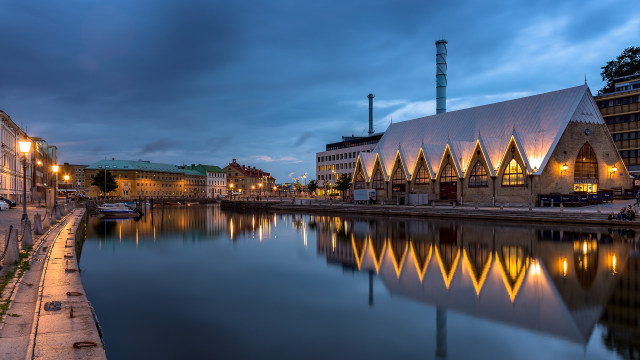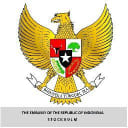Indonesia-Sweden Relationship: Much More than Meets the Opportunities
Konten dari Pengguna
7 Juni 2019 17:29 WIB
Tulisan dari KBRI Stockholm tidak mewakili pandangan dari redaksi kumparan

ADVERTISEMENT
By: Bagas Hapsoro, Ambassador of the Republic of Indonesia to the Kingdom of Sweden.
ADVERTISEMENT
As the two countries will celebrate 70 years of diplomatic relations next year, both countries are enjoying a steady and growing relations as well as sharing a common vision of peaceful and prosperous world. Indonesia and Sweden share much of similarity in their respective foreign policy, contributing towards UN Peacekeeping Operations and just and lasting peace between Palestinians and Israelis based on two-state solution.
In years to come, both countries are looking to deepen their cooperation on the foundation of shared belief in democracy, respect for human rights, gender equality and promotion of world peace.
Working Together for Peace
Both countries are increasingly playing a prominent role on the global stage. Working against a backdrop of sharp polarization, breaches of international norms and weakening support for multilateralism, Indonesia and Sweden are actively working together for world peace.
ADVERTISEMENT
Indonesia and Sweden have a long and active participation in UN peacekeeping history, where both have ongoing dialog, sharing experiences, shaping and sharing norms on the protection of civilians in conflict areas and the role of women in peace and security. For both countries, "gender equality" is not just a slogan, it is a necessity.
Bilateral Cooperation: Partners in Growth
The Swedish King and Queen’s state visit to Indonesia in 2017 presented a huge opportunity and positive effect for business sector. During the visit, the King, ministers and 35 Swedish business leaders took part in the Indonesia-Sweden Executive Forum (ISEF) discussing digitisation, infrastructure and opportunity for doing business. For the future, the two countries are looking to strengthen their economic ties, in the field of investment, energy, environment, transportation and creative economy.
ADVERTISEMENT
The state visit has also seen the signing of three agreements in several areas, creative industries and transportation, including air navigation and airports. Several other agreements were also signed separately, namely cooperation in the field of innovation, in the field of entrepreneurship, in the field of science parks and education.
Indonesia’s Positive Business Climate: Opportunity on the Rise
Sweden is one of the most advanced countries in Europe for business start-ups. The city of Stockholm, for example, is a city of unicorns. Sweden is one of the most innovative country worldwide with a well-established triple helix approach.
As the largest ASEAN country, rich in with natural resources, increasing working age population and middle class, private consumption of about 60 percent of GDP, there is no denying that at present Indonesia is a very promising destination for Swedish business and investment.
ADVERTISEMENT
Based on the 2019 competitiveness rating released by IMD World Competitiveness Center, which was published in May 2019, Indonesia's competitiveness ranking rose from 43 to 32 this year, due to efficiency in the government sector, progress made in infrastructure and the good business climate. The increase is the highest in the Asia-Pacific region.
In the 2015-2019 period, infrastructure development became one of the priority programs of President Joko Widodo to improve economic growth and even distribution of development outcomes. The impact of the completion of a number of infrastructure projects contributed to the improvement of Indonesia's competitiveness.
Business Sweden in Indonesia has recently conducted a survey of how Swedish business companies in Indonesia perceive the current business climate, with over 80 percent of the Swedish companies are expecting increases in revenues over the next three years, and four out of five companies plan to increase investments in the near future.
ADVERTISEMENT
The survey showed that a total of 68% of Swedish companies have operated for more than 10 years in Indonesia and Swedish companies have positive outlook for the development of their business, planning to expand their activities and investment.
The Indonesian economy is predicted to grow to become 7th largest by 2030, moving from emerging market into economic powerhouse. That change will increase business opportunities, especially in the creative economy and start-up business, the most dynamic sectors of Indonesian economy, along with the huge potentials in technology sector.
Sweden well-known companies such as H&M, IKEA, Tetra Pak, ABB Group, Ericsson and many others are already established and growing in Indonesia, their ideas and technology contributes positively for the development of Indonesian infrastructure for creative economy and start-up business.
ADVERTISEMENT
Democratic process has been praised by investors and businessmen.
Indonesian election officials have said that the final tally of last April’s presidential election. Official counts show that Mr. Jokowi has bested his opponent by more than 9 percentage.
By far, Indonesian currency and share market have weathered the election campaign, extending modest gains so far this year. There is no doubt that Indonesia’s processes and institutions that adjudicate election challenges are seen as tested, well institutionalized and expected to rule fairly on any challenge that is brought before them.
Way forward
Looking back at all the developments in the bilateral ties, we can surely see a great potential for advancing the relationship into the future. Cooperation in environmentally sustainable economy is one of the priorities on the table.
ADVERTISEMENT
Continued dialogue with research community to identify pathways for sustainable development of the agro-industry in Indonesia plays a major role in this issue. Swedish experiences and scientific-based expertise in bioenergy can provide valuable support and insights to Indonesia.
Sustainable bioenergy and palm oil studies are being conducted in Royal Institute of Technology (KTH) to enhance and utilize the biomass potentials in Indonesia. The Swedish Institute has expressed interest in seeing the management of sustainable palm oil plantations in Kalimantan and Sumatra this November.
Sharing knowledge and lessons-learned in the area of forest preservation as well as sustainable tourism would be a very interesting path forward for the bilateral ties and should be intensified and carried out more quickly. Finally, all these developments mean the future is bright for Indonesia-Sweden relations.
ADVERTISEMENT

